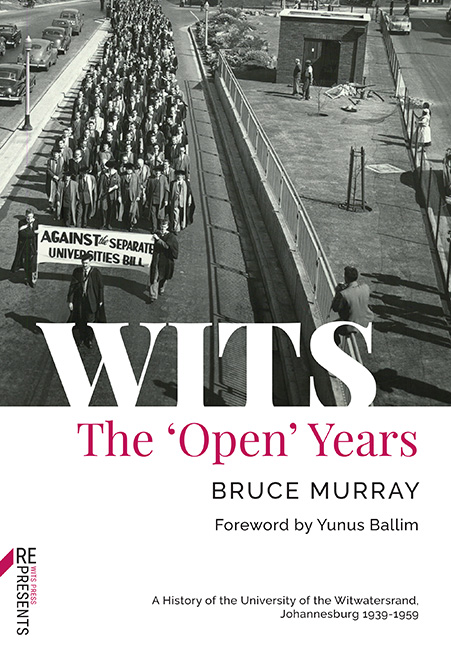9 - Defending the ‘Open University’
Published online by Cambridge University Press: 24 November 2023
Summary
In 1959 the Nationalist Government, after a decade in power, finally passed legislation through Parliament to impose apartheid on South Africa’s university system. The legislation was carried in the face of a major campaign of protest mounted by the English-medium universities of South Africa, led by Wits and UCT as the country’s two ‘open universities’, by Fort Hare, and by NUSAS, which co-ordinated student protest both domestically and internationally. Various liberal organisations, notably the Women’s League for the Defence of the Constitution, or Black Sash as it was known by its emblem, and the South African Institute of Race Relations, joined in the campaign to arouse public opposition to the government’s proposals for university apartheid, and in Parliament the Opposition put up a dogged resistance to the legislation first introduced in 1957. Apart from the removal of the coloured voters of the Cape Province from the common roll, no other single measure of the 1950s gave rise to so great and prolonged a public furore, and as a consequence of the international links NUSAS and the universities themselves brought into play, the repercussions were international. As the Rand Daily Mail commented on 9 March 1959, ‘few of the Union Government’s apartheid measures have created a worse atmosphere for this country overseas than the University Apartheid Bill’.
A feature of the campaign against university apartheid was the high degree of solidarity demonstrated by Wits and UCT in developing a united front on their respective campuses and in co-ordinating action between themselves. What began as student protests resulted ultimately in corporate protests at the two universities, involving all their constituencies, Council, Senate, Convocation, lecturers and students. Wits staged two such protests, the first in the University’s history; a march from Braamfontein to the City Hall in May 1957, and a General Assembly in April 1959 to record the University’s ‘solemn protest’ against the new legislation. ‘Wits,’ Witwatersrand Student commented on the eve of the 1957 march, ‘is today a completely united front against apartheid.’ Eddie Roux, senior lecturer in Botany and once a leading member of the Communist Party, was deeply impressed by the protest march undertaken by academic staff as well as students.
- Type
- Chapter
- Information
- WITSThe 'Open' Years, pp. 289 - 321Publisher: Wits University PressPrint publication year: 2022



